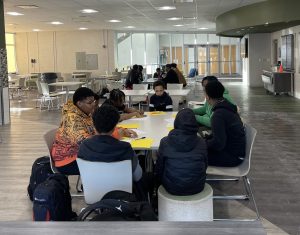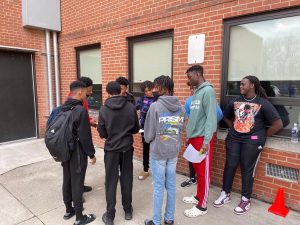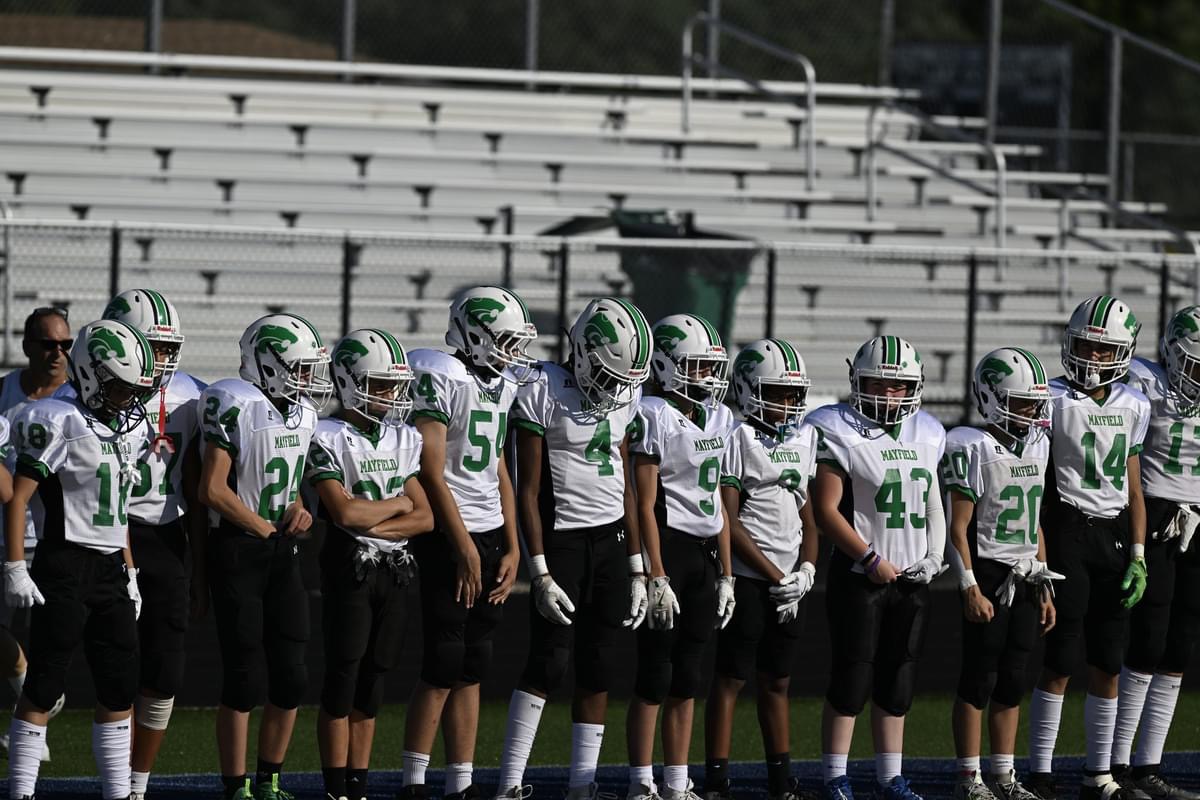
MAC Scholars, the abbreviation for Minority Achievement Committee, is a program designed to promote African American students’ confidence, respect, and pride. They also strive to increase the success of African-American students from their elementary years to their high school experience.
MAC Scholars is in its sixth year at Mayfield. MMS teacher Kerry Rutigliano advises the group, which she describes as a “mentor and mentee program that promotes academic excellence.” She seeks to pair high school students who have academic potential with younger students. “The hope,” she says, is that “mentees grow to be mentors.”
Students can get invited with the program in middle school by invitation and can also learn more about the program at the high school’s club fair. According to Mrs. Rutigliano, they hope to have their first meeting for current eighth graders this winter. She says that is excited for this year because there are “so many strong potential MAC mentees.”
Shaker Schools’ website notes that MAC Scholars was originally created to help African American boys and girls obtain academic excellence. The program would help students do more than just achieve academic excellence and would assist in finding oneself as a person.

Mary Lynne McGovern founded the MAC Scholars program in Shaker because she found that some African Americans struggled with work. According to Shaker Lite, “Mary Lynne McGovern formed the MAC Scholars program that has changed the lives of not only students in Shaker but students nationwide.” However, the program didn’t start as the MAC Scholars program; it was originally called the Push Excel Program led by Jesse Jackson in 1978. Their mission was slightly different because they only helped the students with under a 2.0 GPA, and the main goal was to bring grades up. The program was successful but didn’t last. Once the program ended, McGovern decided she wanted to keep helping African American kids who needed it, so they formed a committee that became MAC.
It started with just a small group of ten faculty members. They took on a few African-American students, taught them different skills, and talked to parents and teachers to see if it affected them positively or not. The program expanded to the point where they were interested in all African American students who displayed scholarly traits or had the potential to become scholars. Those students participated in meetings to give younger students of color advice.
Shakerite states “According to a 1990 study, around 70 percent of the African-American males in 9th grade were achieving below a C average.” The article displays that African American students were struggling to maintain decent grades.

A group like MAC is needed because of the statistical facts that African American children struggle more in school than Caucasians, for multiple reasons such as the lack of chances of success and the schools they attend. For instance, UNCF states that “African American students are less likely than white students to have access to college-ready courses. In fact, in 2011-12, only 57 percent of black students had access to a full range of math and science courses necessary for college readiness, compared to 81 percent of Asian American students and 71 percent of white students.” The research shows that schools in predominantly white areas often offer more resources.
UNCF also asserts that “Even when black students do have access to honors or advanced placement courses, they are vastly underrepresented in these courses.” The constant underrepresentation may cause other African Americans to not even attempt to join a program of special learning, because of the low success rate in their race.
Black students usually attend a school of a lower rating, again causing them to have less of a chance at success. According to the Ohio Department of Education, 34.7% of black students attend a school rated with a “D” from the state. In contrast, only 18.6% of other race students attend a D-rated school.
The MAC Scholars program attempts to motivate and inspire African American children by offering help toward academic success–providing tools to make it ahead in life.







